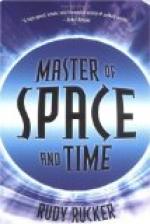I find myself [he wrote] without sympathy or help from any who are associated with me, whose interests, one would think, would impell them to at least inquire if they could render me some assistance. For nearly two years past I have devoted all my time and scanty means, living on a mere pittance, denying myself all pleasures and even necessary food, that I might have a sum, to put my telegraph into such a position before Congress as to insure success to the common enterprise. I am crushed for want of means, and means of so trifling a character, too, that they who know how to ask (which I do not) could obtain in a few hours.... As it is, although everything is favorable, although I have no competition and no opposition—on the contrary, although every member of Congress, so far as I can learn, is favorable—yet I fear all will fail because I am too poor to risk the trifling expense which my journey and residence in Washington will occasion me. I will not run in debt, if I lose the whole matter. No one can tell the days and months of anxiety and labor I have had in perfecting my telegraphic apparatus. For want of means I have been compelled to make with my own hands (and to labor for weeks) a piece of mechanism which could be made much better, and in a tenth the time, by a good mechanician, thus wasting time—time which I cannot recall and which seems double-winged to me.
“Hope deferred maketh the heart sick.” It is true, and I have known the full meaning of it. Nothing but the consciousness that I have an invention which is to mark an era in human civilization, and which is to contribute to the happiness of millions, would have sustained me through so many and such lengthened trials of patience in perfecting it.
A patent on the telegraph had been issued to Morse in 1840. The issuance had been delayed at Morse’s request, as he desired to first secure foreign patents, his own American rights being protected by the caveat he had filed. Although the commercial possibilities, and hence the money value of the telegraph had not been established, Morse was already troubled with the rival claims of those who sought to secure a share in his invention.
While working and waiting and saving, Morse conceived the idea of laying telegraph wires beneath the water. He prepared a wire by wrapping it in hemp soaked in tar, and then covering the whole with rubber. Choosing a moonlight night in the fall of 1842, he submerged his cable in New York Harbor between Castle Garden and Governors Island. A few signals were transmitted and then the wire was carried away by a dragging anchor. Truly, misfortune seemed to dog Morse’s footsteps. This seems to have been the first submarine cable, and in writing of it not long after Morse hazarded the then astonishing prediction that Europe and America would be linked by telegraphic cable.




